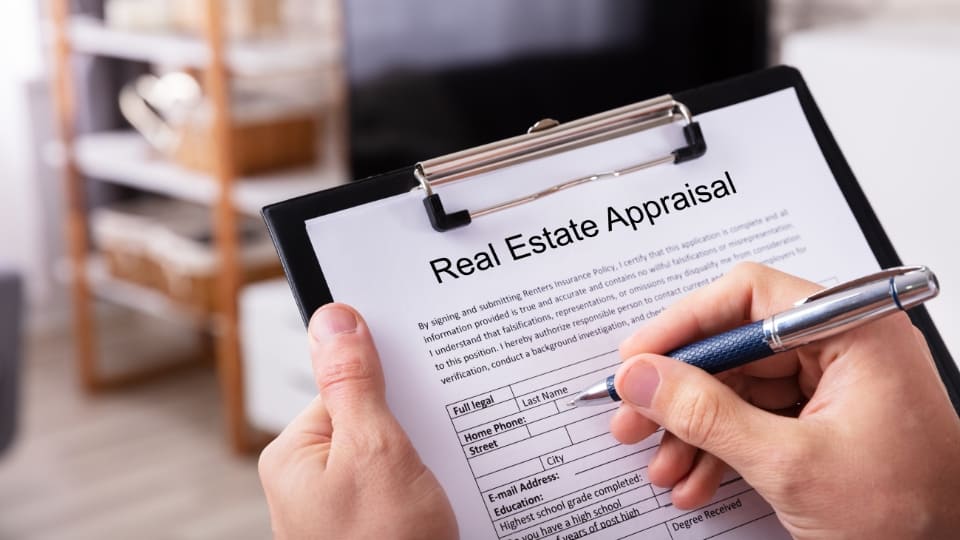Should I Get a Home Appraisal Before Selling?
Selling a house can be difficult, especially if you need clarification about its value. A pre-sale house appraisal, which provides an estimate of the property’s value, is one technique to evaluate the value of your home. But the issue remains: Is an appraisal required before selling your house? While there are advantages and disadvantages to obtaining a pre-listing appraisal, it can be a valuable tool for both the seller and the buyer.
On the one hand, an appraisal can help you set a sensible price for your house and give potential purchasers a sense of what the property is worth. However, there are certain drawbacks to consider, including the expense of the appraisal and the likelihood of an incorrect valuation.
In this post, we’ll look at the advantages and disadvantages of getting a pre-listing evaluation and help you determine if it’s the best option.
Pre-Listing Appraisal vs Cma: Key Differences

There are two basic ways to assess your home’s value before selling it: a pre-listing appraisal or a comparative market analysis (CMA). While both try to assess your home’s fair market worth, there are significant distinctions between the two.
A pre-listing appraisal is a paid service performed by a licenced home appraiser. This appraisal considers various factors, including the home’s condition, location, and previous home sales in the neighbourhood. A CMA, on the other hand, is typically done by a real estate agent and evaluates the worth of your house based on recently sold properties in your region that are comparable in size, amenities, and location.
Another key distinction is that state-licensed professionals conduct appraisals. Still, CMAs are made by licenced real estate agents or brokers who are not bound by norms or industry standards. Furthermore, pre-listing assessments are more formal and controlled than CMAs, and appraisers must keep their licences by meeting stringent ethical and performance standards.
While a pre-listing appraisal is more expensive and time-consuming than a CMA, it can provide more accurate and unbiased information about your home’s value. A CMA, on the other hand, is often free and faster to obtain, but it may be more subjective and vary from agent to agent. Therefore, it is up to the seller to consider the advantages and disadvantages of each option and determine which approach best meets their objectives.
Who Should Consider a Pre-Listing Appraisal?

Selling a property is a significant financial decision, and it is critical to get the pricing right. One common concern is whether or not to obtain a pre-listing appraisal, also known as a pre-appraisal, before listing your home for sale. In most situations, a free home value estimate and a comparative market analysis (CMA) from a qualified real estate agent give sellers adequate information to set a reasonable price. On the other hand, a pre-listing appraisal can be valuable in some cases, such as when selling by the owner (FSBO) or when your home has unique attributes that make it difficult to value.
Mispricing a listing is a danger of selling without a realtor. Thus an assessment can provide FSBO sellers with a piece of mind. Furthermore, an appraisal can be useful in bargaining with a possible buyer who offers less than the home’s true value.
On the other hand, a pre-listing assessment will take more time and money than a CMA, so balance the advantages and downsides and decide whether it’s necessary for your circumstance.
How to Decide if You Should Get a Pre-Listing Appraisal
If you’re considering selling your house, one of the essential decisions you’ll have to make is whether or not to have a pre-listing assessment. While a comparative market analysis (CMA) or a home value estimator can estimate your house’s value, they are only sometimes accurate. A pre-listing appraisal, on the other hand, is a paid home valuation performed by a professional house appraiser that can provide a more specific estimate of the value of your home.
To determine whether a pre-listing evaluation is right for you, consider the following: Is my home distinguished by qualities that make it difficult to value? Am I selling my house on my own (FSBO)? Do I have enough money to pay for an appraisal, which can cost $350 to $400 or more? If you answered “yes” to any of these questions, a pre-listing appraisal might be worthwhile to explore.
Remember that a pre-listing appraisal is more formal and controlled than a CMA. It can be a useful negotiation weapon with potential purchasers who offer you a price less than your home’s fair value. On the other hand, a pre-listing appraisal is only sometimes essential and may not be worth the time and money for every homeowner. It eventually comes down to your circumstances and ambitions.
How Do Pre-Listing Appraisals Work?
You should know how the process works if you’re considering getting a pre-listing appraisal. The following are the processes for obtaining a pre-listing appraisal:
- Find a licenced appraiser: The first step is to locate a qualified appraiser in your region. You can find a local appraiser by asking your real estate agent for suggestions or looking online.
- Schedule an appointment: Once you’ve identified an appraiser, please make an appointment for them to visit your home. The appraiser will inspect your property thoroughly throughout the appointment. Often, this will entail taking measurements, photos, and notes on the state of your home.
- Data analysis: The appraiser will assess data from various sources after the on-site inspection to estimate the fair market value of your home. Recent home sales in your region, the condition of your home, and any distinctive features that may affect its worth are all factors to consider.
- Receive the appraisal report: Upon completing the assessment, the appraiser will present you with a full report containing the calculated worth of your home. This report might help you decide how much to list your home for.
Yet, if it helps you set a reasonable price for your house and minimise potential complications during the sales process, the time and money invested on a pre-listing appraisal may be worth it.
3 Potential Pre-Listing Appraisal Outcomes (and What to Do)
A pre-listing appraisal can assist sellers in estimating the fair market value of their home before putting it on the market. Yet, the appraisal outcome can vary, requiring sellers to adapt their expectations or change their listing strategy.
1. The first possible outcome of a pre-listing appraisal is confirmation of your agent’s valuation. If you and your real estate agent agree on a CMA, a pre-listing appraisal can provide an independent, third-party view to corroborate the valuation. This might boost your pricing strategy’s confidence and help you haggle with possible purchasers.
2. The second possibility is that the evaluation differs from the valuation provided by your agent. You can debate and change your home’s listing price with your agent using the appraisal report in this situation. Understanding that appraisals and CMAs utilise distinct approaches to calculate home values is crucial. Thus disparities between the two are likely. Using both reports to inform your pricing approach, you can arrive at a fair and competitive listing price.
3. The appraised value may be less than your agent’s estimate. In this instance, you may need to change your expectations and consider lowering your home’s listed price. Remember that appraisals are based on objective facts and market trends, so if the appraisal value is lower than expected, it could mean that the market has altered or that your home needs some renovations or repairs.
Working with your real estate agent to choose the best course of action based on the appraisal results is critical.
Overall, a pre-listing appraisal can provide useful information to sellers in determining the fair market value of their home before advertising it for sale. But, it is critical to be prepared for any possible outcomes and to collaborate with a trusted real estate agent to alter your approach as needed.
Your Appraisal vs Buyer’s Appraisal
If the buyer’s appraisal is lower than your pre-listing appraisal, the sale of your house may suffer. Because the lender will normally only lend up to the home’s appraised value, the buyer may have to renegotiate the price or pay the difference out of pocket if the buyer’s appraisal is lower than the purchase price. In this circumstance, you can contest the buyer’s evaluation by giving additional information or asking for a new appraisal. Working closely with your estate agent and solicitor to resolve any inconsistencies between the pre-listing evaluation and the buyer’s appraisal is critical.
Why It’s Important to Price Your Home Correctly
Correctly pricing a home is a vital component of a successful home sale. While it may be tempting to set a high price to receive a large payout, doing so can backfire and result in a lower selling price in the end. On the other hand, pricing a home too low may result in missed profit chances. So, how do you figure out the right price for your house?
Market value is an important aspect. Your home’s current market value is the price buyers are willing to pay, and sellers are willing to accept. To assess market worth, consider several characteristics, including location, size, condition, and recent sales of comparable homes in the region.
Choosing the proper pricing is critical since it can influence potential buyers’ interest in your home. According to research, the longer a home is on the market, the less desirable it becomes to purchasers. If your home is on the market for an extended period, it may result in price reductions, an extended time on the market, and, ultimately, a lower selling price.
A well-priced home, on the other hand, is more likely to attract serious purchasers eager to make competitive bids. In a hot market, correctly pricing a home can even spark a bidding battle, culminating in an offer above the asking price.
Finally, remember that determining the right price is a delicate balancing act. While it is critical to aim for a price that truly reflects the worth of your house, it is also critical to remain competitive and not overprice your home. You may price your home effectively and optimise your potential profit by working with a knowledgeable real estate agent and evaluating all important criteria.
Conclusion
Finally, a pre-listing appraisal can be useful for homeowners trying to sell their homes. It gives an impartial and expert evaluation of a property’s value, allowing sellers to price their home and prevent costly mistakes appropriately. While a pre-listing appraisal does have a cost, the investment can pay off in the form of a faster sale and a higher selling price. Remembering that a pre-listing appraisal is only one element of the home-selling equation is crucial. Working with an experienced real estate agent and paying close attention to market trends and buyer demand can also assure a successful and profitable transaction.







Thanks for explaining how investing in home appraisal helps you identify the final value of your property easier. My colleague talked about his uncle’s plans for retirement this year. This information can definitely help them sell their old properties for extra income.